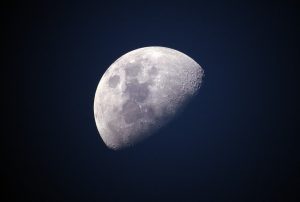At the end of August, South Korea’s Ministry of Science and ICT announced that it was on course to launch the country’s first lunar obiter, the Korea Pathfinder Lunar Orbiter (KPLO), next year. The announcement marks not only a significant step in the development of South Korea’s space program, but is also part of an increasing level of space cooperation with the United States.
The KPLO is the next step in South Korean efforts to expand its exploration of space and is being developed with cooperation from NASA. The orbiter will have five instrument payloads, including a high-precision camera designed for studying the lunar surface that was provided by NASA. NASA is also expected to help South Korea with deep space communications and navigation for the orbiter.
Earlier this year, South Korea signed the Artemis Accords, a set of principles organized by the United States for countries to support cooperation and peaceful exploration of the moon and deep space.
The high-precision camera on the KPLO will gather information on the lunar surface to support NASA’s Artemis Mission to return humans to the moon’s surface and create a sustainable human settlement on the moon by the end of the decade. While the KPLO’s research will support the Artemis Mission, it remains to be determined what additional role South Korea will play in efforts to return humans to the moon.
South Korea plans to follow up the lunar orbiter with a mission to place an unmanned lander on the lunar surface with a Korean launch vehicle by 2030.
Beyond cooperation with the United States on the development of the KPLO and in the Artemis Mission, the United States and South Korea regularly work together on civil space issues through a Space Policy Dialogue established in 2015. More recently, South Korea’s Air Force agreed to create a consultative body with the U.S. Space Force on space security policy. The consultative body will cooperate on space policy and missile defense, and share information on space intelligence.
South Korea’s space program has long been constrained by missile guidelines with the United States that restricted the distance and payload size of South Korea’s ballistic missiles. These restrictions created technical constraints for South Korea’s efforts to develop an indigenous space launch vehicle. It wasn’t until 2013, with Russian assistance, that South Korea’s Naro-1 rocket successfully launched a South Korean satellite into space.
Earlier this year, however, the United States agreed to lift missile guidelines, which will ease the development of indigenous space launch vehicles more powerful than the Naro-1. Emphasizing the importance of this decision for South Korea’s space program, President Moon Jae-in said it will “usher in a new space era for the Republic of Korea by developing our own launch vehicles.”
With the guidelines removed South Korea hopes to catch up with competitors in the commercial space industry.
It also sees opportunities to expand commercial ventures related to space. Similar to the U.S. GPS system, South Korea is planning to deploy its own satellite navigation system and a 6G communications satellite network. As the world becomes more interconnected, South Korean officials see new urban air-mobility ventures, such as the one being pursued by Hyundai Motors, as well as self-driving cars and drones tapping into the data provided by its new networks.
It has been decades since the United States and Soviet Union competed to place a human on the moon, but when the KPLO launches next year South Korea will join an exclusive group of countries that have sent orbiters to the moon. While that has been made possible by cooperation with the United States, South Korea’s long-term aspirations in space reach farther.
































